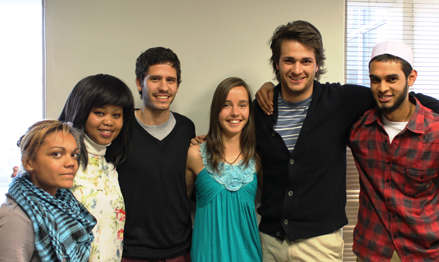Latest News Archive
Please select Category, Year, and then Month to display items
12 October 2020
|
Story Arina Engelbrecht
|
Photo Supplied
 Arina Engelbrecht from Organisational Development and Employee Well-being believes physical activity has a number of benefits for one’s health, including stress relief.
Arina Engelbrecht from Organisational Development and Employee Well-being believes physical activity has a number of benefits for one’s health, including stress relief.
Being physically active plays a big role in preventing the development of mental-health problems and in improving the quality of life of people experiencing mental-health problems.
Treatment for depression
Physical activity can be an alternative treatment for depression. It can be used as a stand-alone treatment or in combination with medication and/or psychological therapy. It promotes all kinds of changes in the brain, including neural growth, reduced inflammation, and new activity patterns are formed that promote feelings of calm and well-being. It releases endorphins – powerful chemicals in the brain that energise your spirit and make you feel good.
Physical activity can be very effective in relieving stress. Research in adults has found that physically active individuals tend to have lower stress levels compared to individuals who are less active. It also leads to improved sleep. When a person sleeps better and feels more rested, overall quality of life improves. They cope better with daily life stressors.
Reduce Alzheimer's risk
Regular physical activity can reduce your risk of developing Alzheimer's disease by up to 50%. It can also slow down further deterioration in those who have already started to develop cognitive problems. It stimulates the brain’s ability to maintain old connections as well as to make new ones.
A study asked people to rate their mood immediately after periods of physical activity (e.g. going for a walk/run, cycling, doing housework) and periods of inactivity (e.g. reading a book or watching television). Researchers found that participants felt more content, more awake, and calmer after being physically active compared to after periods of inactivity.
In conclusion, people who are physically active feel a sense of well-being, feel more energetic throughout the day, sleep better at night, have sharper memories, and feel more relaxed and positive about themselves and their lives.
“Being physically active not only changes your body, it changes your mind,
attitude, and your mood.” – Arina Engelbrecht
Students take part in prestigious programme at Stanford University
2013-08-05
|
 |
Ready for Stanford. From the left are: Patricia Mapipi, SinazoMabunu, Claudio Carlos, Elzahn van der Westhuizen, Stefan van der Westhuizen and Zakariyya Patel.
Photo: Jerry Mokoroane
05 August 2013 |
At the end of August 2013 six Kovsies will depart for Stanford Sophomore College in San Francisco, USA, to take part in a prestigious residential programme. The programme stems from a key partnership between the UFS and Stanford University.
This programme involves the most talented second-year undergraduate students from both the UFS and Oxford universities joining the Stanford Sophomore College.These students spend over two weeks during the USA summer recess engaged in a programme which concentrates on the academic studying of innovative and multidisciplinary topics.
The Kovsies students selected for the 2013 programme are: Patricia Mapipi and Sinazo Mabunu from the Faculty of the Humanities; Claudio Carlos and Elzahn van der Westhuizen from the Faculty of Economic and Management Sciences; and Stefan van der Westhuizen and Zakariyya Patel from the Faculty of Health Sciences.